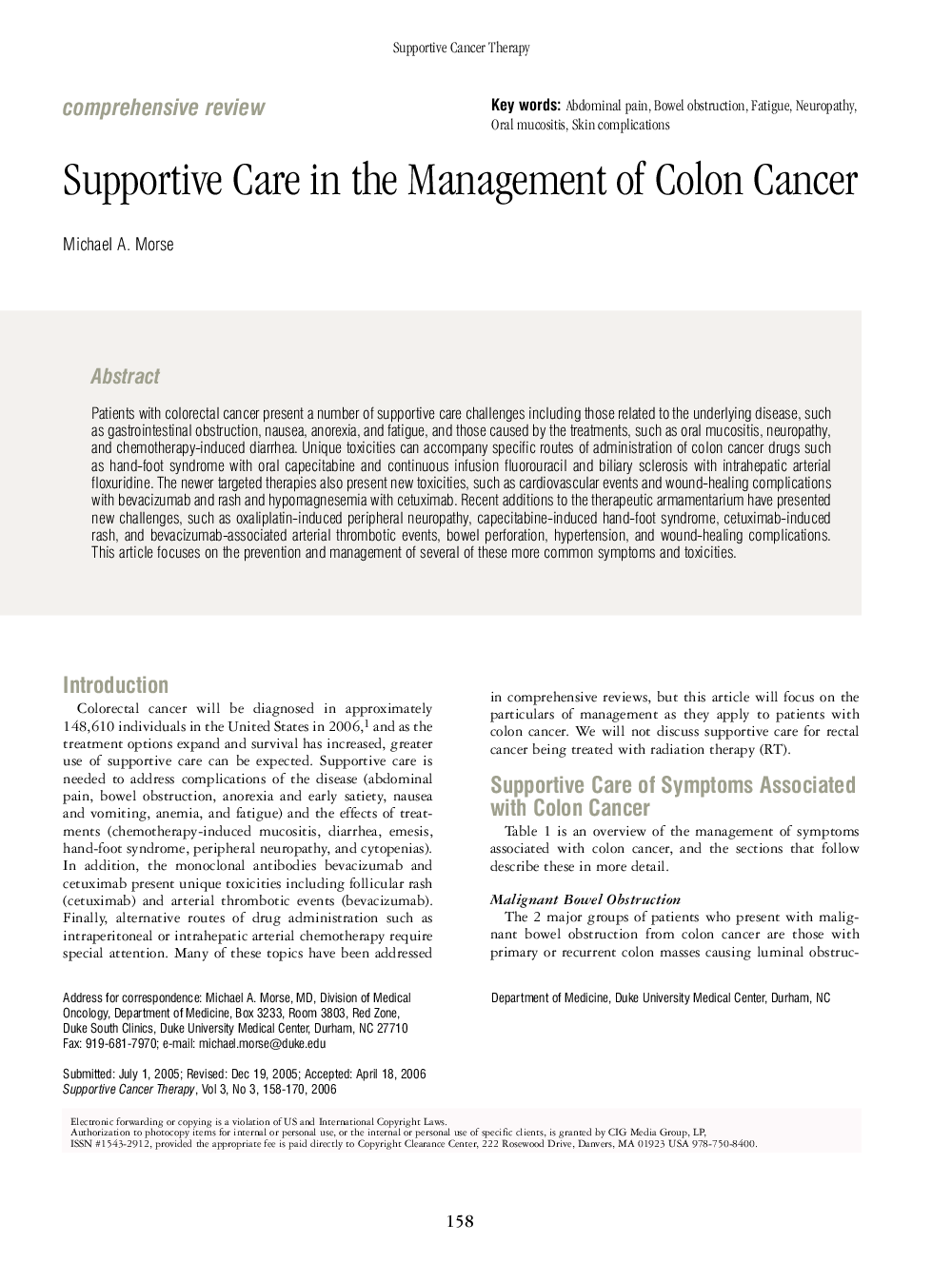| Article ID | Journal | Published Year | Pages | File Type |
|---|---|---|---|---|
| 3997633 | Supportive Cancer Therapy | 2006 | 13 Pages |
Patients with colorectal cancer present a number of supportive care challenges including those related to the underlying disease, such as gastrointestinal obstruction, nausea, anorexia, and fatigue, and those caused by the treatments, such as oral mucositis, neuropathy, and chemotherapy-induced diarrhea. Unique toxicities can accompany specific routes of administration of colon cancer drugs such as hand-foot syndrome with oral capecitabine and continuous infusion fluorouracil and biliary sclerosis with intrahepatic arterial floxuridine. The newer targeted therapies also present new toxicities, such as cardiovascular events and wound-healing complications with bevacizumab and rash and hypomagnesemia with cetuximab. Recent additions to the therapeutic armamentarium have presented new challenges, such as oxaliplatin-induced peripheral neuropathy, capecitabine-induced hand-foot syndrome, cetuximab-induced rash, and bevacizumab-associated arterial thrombotic events, bowel perforation, hypertension, and wound-healing complications. This article focuses on the prevention and management of several of these more common symptoms and toxicities.
